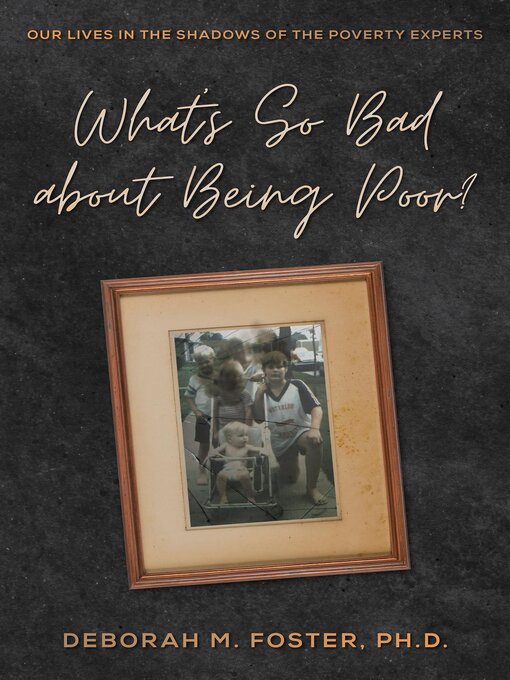Deborah M. Foster's What's So Bad About Being Poor? Our Lives in the Shadows of the Poverty Experts is a searing critique of how poverty is understood, managed, and exploited in modern society. The book boldly challenges the authority of poverty experts-academics, policymakers, and think tanks-whose detached analyses and data-driven solutions, Foster argues, often perpetuate harm instead of alleviating it. This incendiary work ignites debates on the commodification of the poor and the paternalistic policies that dominate anti-poverty initiatives.
Foster flips the script on conventional poverty discourse by centering the voices of those who live in poverty, exposing the inadequacies and blind spots of well-intentioned but misguided "experts." Through vivid, raw stories of resilience and struggle, she paints a humanized portrait of poverty that starkly contrasts the cold, clinical narratives found in policy discussions. Foster accuses the elite academic and political classes of treating the poor as abstract problems to be solved rather than as people with agency, dignity, and dreams.
Her critiques do not stop at the experts. Foster also takes aim at society's moral judgments about poverty, questioning why poverty is viewed as inherently bad or shameful. She provokes readers to examine their biases and consider whether poverty itself or the structures that perpetuate it are the true sources of suffering. The book's unapologetically confrontational tone has sparked controversy, with critics labeling it as incendiary and polarizing, while supporters hail it as a revolutionary call to action.
What's So Bad About Being Poor? is more than a book-it's a challenge to rethink poverty, expertise, and the systems we uphold. It forces readers to confront uncomfortable truths about inequality and the ways society marginalizes its most vulnerable. Foster's work dares to ask: What if the real problem isn't poverty itself but how we choose to understand and address it?
